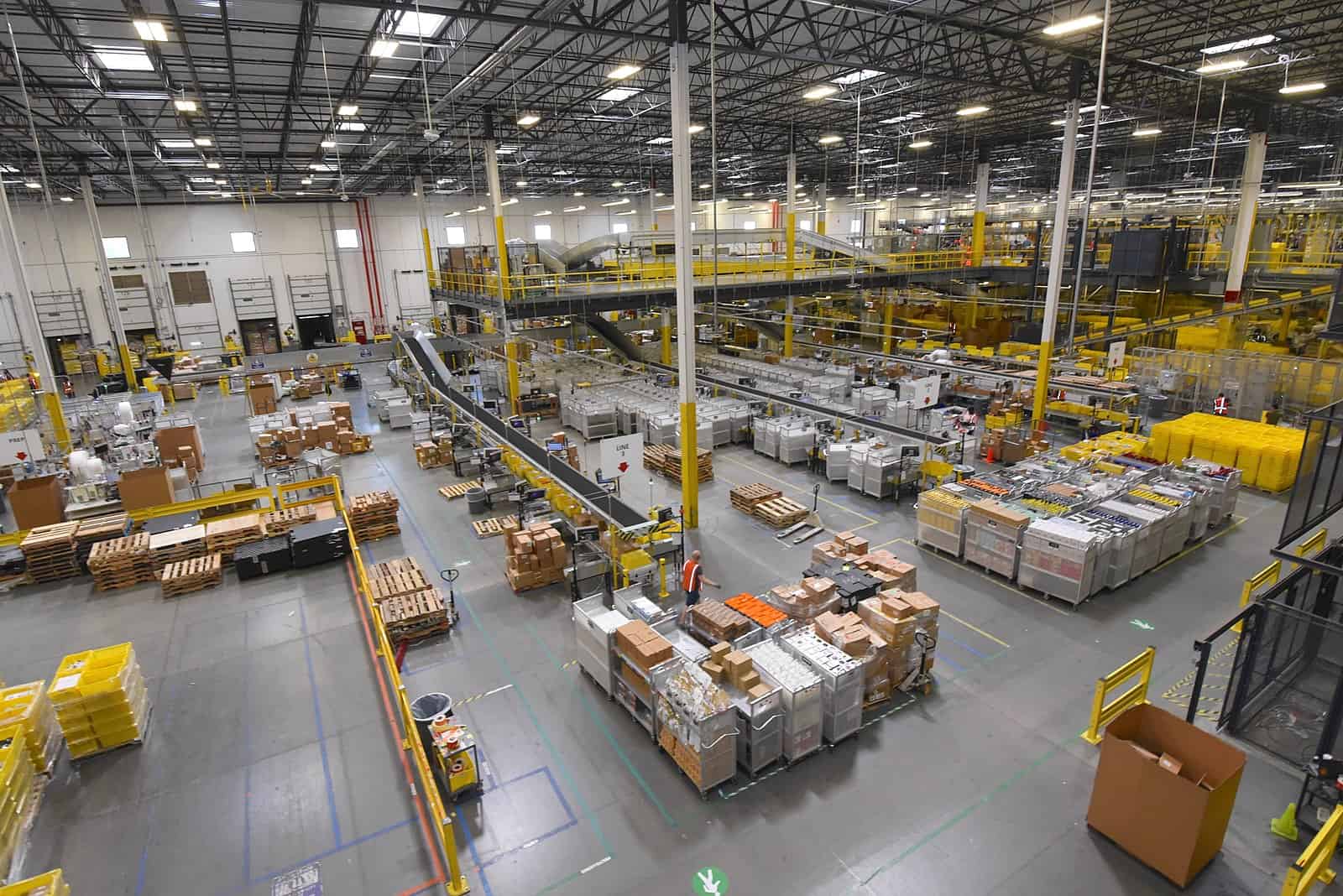
Tascha Shahriari-Parsa is a government lawyer enforcing workers’ rights laws. He clerked on the Supreme Court of California after graduating from Harvard Law School in 2024. His writing on this blog reflects his personal views only.
Yesterday, NLRB prosecutors accused Amazon of violating federal labor law by threatening, interrogating and surveilling workers at a New York warehouse where a unionization effort was underway. According to the NLRB complaint, an Amazon consulting promised to solve employees’ problems if they did not support the union, interrogated employees about their union activities, prevented employees from distributing union materials, and referred to union organizers as “thugs” who could not form a successful unionizing drive. As of Wednesday, workers gathered enough signatures to trigger a union election, according to NLRB officials.
In the state of Washington, negotiations between the Teamsters and Uber and Lyft over a legislation on ridesharing drivers’ rights and legal status may be coming closer to a turning point. “We hope the final version of this bill will provide drivers with the certainty they need around wages, a state safety net, and a dispute resolution process,” the local Teamsters union Vice President Brenda Wiest told lawmakers at the Washington labor committee hearing on Wednesday. “We also hope the final version gives the companies the regulatory certainty that they want to operate successfully in Washington State.” In its current form, the compromise bill would not fully categorize rideshare drivers as employees, but would offer workers a limited set of rights that employees currently have but independent contractors do not, such as paid sick leave and family and medical leave. It would also create a statewide regulatory framework for rideshare companies and charge 15 cents per ride to fund a driver resource center for deactivated drivers. The bill in its current form would not pre-empt stronger local regulations in cities like Seattle, where—unlike in the current Washington bill—the law guarantees that Uber and Lyft drivers earn Seattle’s $16.39 hourly minimum wage.
On Tuesday, OSHA announced that it would be withdrawing its vaccine or mask-and-test mandate for large private employers after it was blocked by the Supreme Court earlier this month. Instead, the rule will remain as a proposal for a permanent requirement. OSHA said that it “continues to strongly encourage the vaccination of workers against the continuing dangers posed by COVID-19 in the workplace.” Meanwhile, Arizona joined a number of States yesterday in blocking enforcement of the vaccine mandate for federal contractors. The mandate was frozen across the country on December 7, 2021 by a federal judge in Georgia, which clarified on January 21 that the injunction applied only to the vaccine requirement and not to other parts of the Safer Taskforce Guidance which created other COVID-safety requirements for federal contractors. Four federal courts of appeals are currently set to weigh in on the mandate for federal contractors.
Janelle Jones, the first Black woman chief economist at the Department of Labor, left her role on Thursday. Before her role in the DOL, Jones had spent over a decade researching why Black people were disadvantaged in the labor market. “When I see that it’ll take four to five years for the economy to return to full employment, what I’m thinking is that it’ll take Black workers 10 or 12 years,” Jones said when she was appointed early last year. “My role here will be to think about those sorts of things, to give a lens to union workers, low-wage workers, different types of workers who aren’t usually centered.” Leaving her post, Jones wrote on twitter: “Being Chief Economist at DOL has been the privilege & honor of my career. To serve w amazing folks across the admin who want an economy that works for workers, & know equity is central to that goal, has been an incredible experience. And it ended today.”






Daily News & Commentary
Start your day with our roundup of the latest labor developments. See all
February 22
A petition for certiorari in Bivens v. Zep, New York nurses end their historic six-week-strike, and Professor Block argues for just cause protections in New York City.
February 20
An analysis of the Board's decisions since regaining a quorum; 5th Circuit dissent criticizes Wright Line, Thryv.
February 19
Union membership increases slightly; Washington farmworker bill fails to make it out of committee; and unions in Argentina are on strike protesting President Milei’s labor reform bill.
February 18
A ruling against forced labor in CO prisons; business coalition lacks standing to challenge captive audience ban; labor unions to participate in rent strike in MN
February 17
San Francisco teachers’ strike ends; EEOC releases new guidance on telework; NFL must litigate discrimination and retaliation claims.
February 16
BLS releases jobs data; ILO hosts conference on child labor.